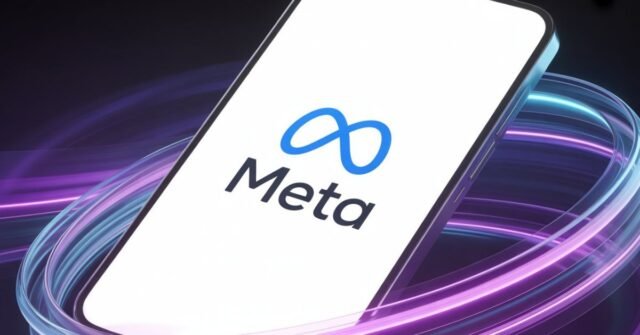Meta CEO Mark Zuckerberg has never been one to shy away from bold bets. From reshaping social media with Facebook to plunging billions into the metaverse, his vision often pushes the limits of technology—and sometimes reality. But after spending $46 billion on the metaverse with little commercial success, Zuckerberg has shifted gears again.
This time, he’s betting bigger—on superintelligence AI.
Backed by historic investments, industry-shifting talent acquisitions, and a complete AI division overhaul, Meta’s new push could reshape artificial intelligence as we know it. Or, it could become Silicon Valley’s most expensive lesson in overreach.
Key Takeaway Points
- Zuckerberg’s New Bet: After the metaverse, Meta shifts focus to building “personal superintelligence” AI.
- Talent War: Meta is offering up to $200M per researcher, shaking up Big Tech hiring.
- Scale AI Deal: A $14.3B move brings Alexandr Wang and team to lead Superintelligence Labs.
- Open-Source Shift: Meta may close off its most advanced models to gain a competitive edge.
- Massive Infrastructure: Meta is building mega data centers like Project Hyperion using internal funds.
What Are Meta Superintelligence Labs?
Meta Superintelligence Labs’ new initiative develops “personal superintelligence,” AI to assist daily life.
In an exclusive interview, Zuckerberg said recent AI breakthroughs show self-improvement, advancing Meta’s goal of general AI enhancing cognition, not just automation.
To make this happen, Meta has restructured its entire AI division, scrapping incremental improvements in favor of a complete reinvention. At the heart of this effort is a new team of top researchers, massive infrastructure investments, and a commitment to leading—not just participating in—the AI race.
Why Is This the Most Expensive Talent War in Tech History?
Meta isn’t just competing with companies like OpenAI and Google—it’s aggressively poaching their top talent.
To build Superintelligence Labs, Zuckerberg has reportedly offered compensation packages reaching $100–200 million for elite AI researchers. While Zuckerberg declined to confirm exact figures, he admitted that AI talent is in “very hot demand,” and competition for researchers is fierce.
But compensation isn’t the only lure. Meta provides unmatched computing power, with Zuckerberg noting that “most compute per researcher” is a strategic advantage. This edge lets Meta scientists train larger models faster, avoiding resource bottlenecks other companies face.
Key Takeaway: Meta’s talent acquisition strategy includes record-breaking salaries, compute access, and leadership roles, giving it an edge in the race to build general AI.
Meta’s $14.3 Billion Investment in Scale AI and Alexandr Wang
Perhaps the boldest move so far is Meta’s $14.3 billion acquisition of Scale AI’s leadership team, led by 28-year-old Alexandr Wang.
Under this deal, Meta took a 49% stake in Scale AI, bringing Wang on as Chief AI Officer. He leads Meta Superintelligence Labs with elite researchers, including ex-Scale engineers and GitHub’s former CEO, Nat Friedman.
Zuckerberg placed Wang’s team in a separate office near his, signaling its critical role in Meta’s future. This elite unit is tasked with developing next-gen AI systems, far beyond what current models can achieve.
“This isn’t about iterating. It’s about starting fresh and building what comes next,” said a Meta insider.
Is Meta Abandoning Open Source AI?
For years, Meta has been a leading proponent of open-source AI development. It released models like LLaMA to foster collaboration and speed up global progress in artificial intelligence.
But that may be changing.
According to internal reports, Meta’s AI leadership is considering keeping its most advanced models closed, starting with the much-anticipated Behemoth model. Despite completing training, the Behemoth model’s underwhelming performance has prompted Meta to pause its open-source release plans.
This represents a major philosophical shift—one that prioritizes competitive advantage over community benefit.
Meta is reconsidering its open-source AI approach to protect proprietary advancements and improve model performance, indicating a potential move toward closed development.
Building the Infrastructure for AI Superintelligence
Talent alone can’t build AGI. Meta is backing its AI efforts with historic infrastructure investments, creating a technical backbone for large-scale model training.
Zuckerberg revealed that Meta is building multi-gigawatt data centers, including one codenamed Hyperion, which he claims will eventually occupy space “the size of Manhattan.”
To fast-track development, Meta is using weatherproof tents and modular construction to deploy data centers faster than traditional methods allow.
Crucially, Meta funds this internally, using its own cash flow, Zuckerberg noted, avoiding external investors or loans.
Actionable insight: These mega-infrastructure projects give Meta a long-term edge in AI scalability and resource availability, a key factor in training superintelligent models.
What Is Personal Superintelligence? Meta’s Unique Vision
Unlike OpenAI or Google, whose AI products often focus on automating productivity or enterprise functions, Meta is pursuing “personal superintelligence.”
In simple terms, this means building AI that supports the daily cognitive, creative, and emotional needs of individuals—not just work tasks.
In his TITV interview, Zuckerberg emphasized areas like:
- Personal relationships
- Culture and entertainment
- Creativity and self-expression
- Real-time life assistance via AI smart glasses
According to him, “If you don’t have AI glasses, you’re going to be at a cognitive disadvantage.”
The long-term goal? AI that becomes a daily personal companion, enhancing decisions, managing information, and even assisting with social interaction—all in real-time.
How Meta’s AI Vision Impacts the Industry
Meta’s AI reboot is more than a company strategy—it’s creating ripple effects across the entire tech industry.
1. Salary Inflation
Rival companies like Google DeepMind, Microsoft, and OpenAI are being forced to match or exceed Meta’s pay offers to keep their top researchers. This is creating upward pressure on compensation across the board.
2. Closed-Source Trends
If Meta formally shifts away from open-source models, other firms may follow suit, slowing public innovation and increasing the divide between Big Tech and academic or startup researchers.
3. Internal Culture Shifts
Inside Meta, not all employees are thrilled. Reports suggest that those not invited to join the elite superintelligence unit feel sidelined, and some may leave the company as a result.
Key industry takeaway: Meta’s AI reboot is forcing the entire industry to evolve faster—driving up costs, tightening the talent pool, and redefining how AI is built and shared.
Conclusion: Is Meta’s Superintelligence Bet Too Big to Fail?
Meta’s strategic shift toward superintelligence AI sets a bold direction for the company and the broader tech industry. After investing billions, rebuilding its leadership, hiring top research talent, and acquiring computational power rivaling a major city, Meta is fully committed to this AI path. Its focus on personal AI assistants and wearables carves out a unique market, distinct from rivals’ productivity-driven or enterprise-focused AI offerings.
However, the associated dangers are quite high. In case the project brings no commercially viable products, or no evidence of breakthroughs, Meta may face a second metaverse-level failure.
There is a single aspect that cannot be argued: the whole world is mesmerized and the most expensive talent war in the history of Silicon Valley just started.







